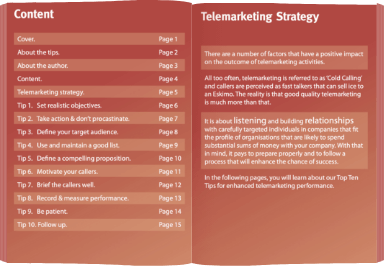Many organisations have technical products, skills and services upon which their clients rely. They offer solutions that ensure that their customers can run their business effectively. Often, companies have skilled personnel that are product or solutions specialists. However, it’s perhaps rare to find product experts that are also proficient in sales lead generation.
We’re talking here about skilled lead generators that can unearth prospects. To distort a well-known phrase, these knowledgeable executives know how to make the horse drink but they can’t find the horse and lead it to water.
Sales People are expensive
Of course, that’s perhaps both underestimating the value of some salespeople and overplaying the capability to sell amongst other managers and directors.
Sales personnel are regularly the most costly resource because they deliver oil to the engine that keeps the wheels turning. Ultimately, without sales lead generation, most businesses will flounder. Yet, recruiting and retaining good people for sales roles is both challenging and expensive.
Scrutinising productivity is essential
Yet, when times are hard, businesses must take a close look at internal overhead. Productivity comes under pressure and, frankly, it gets tougher to generate new business. That’s where customer retention is crucial, not least because it’s generally cheaper, and more profitable, to keep a current customer than to locate and convert a new one.
Senior executives know how to convert
Account managers, product managers, directors and business owners are experts in what they do. They have a strong understanding of the benefits of what the business offers. They can solve clients’ problems. They’re pretty good at that. Unfortunately, the most common comment we hear is ‘once we’re in front of a prospect, we’re fine. The problem is the lead generation part’.
Flexibility is the answer
Of course, removing all sales lead generation is a dangerous game. However, flexibility becomes more important. Do you need a full-time resource? Do you need to absorb costs such as national insurance, pension, holiday and sick pay? And, is there a way to fragment the process of sales lead generation to make it work effectively when costs are under scrutiny?
Significantly enhanced productivity in the sales process
It sounds like this is a big play for outsourcing and it is. I do a lot of telemarketing skills training. I have trained hundreds of in-house telemarketers, and sales teams. Part of this training is an evaluation of productivity. Simply, I analyse the productivity of those involved in generating leads, especially through telemarketing outreach.
What I find is the following:
- Typically, the difficult task is lead generation while those involved in running the business are generally confident in their ability to convert the leads
- Call rates for in-house telemarketers are woefully inadequate. I see rates of perhaps 4-8 calls per hour, made on a sporadic basis even when there is no other lead generation activity to mitigate this. Note: We task our team to achieve 12-20 calls per hour for high quality lead generation. And, that’s every hour worked!
- Internal calling systems are usually inadequate since they are not configured for quick and effective sales outreach
- Data selection and quality, for targeting, is poor, leading to poor results
- Amongst senior sales personnel, there is always a promise of future business but it often doesn’t materialise
It’s cheaper to have in-house telesales
One argument we often hear is that ‘we can hire someone internally much cheaper.’ That’s a comment that is also worthy of further analysis.
It is usually true that a business can hire a member of staff to do the ‘farming’ so to speak for a lower initial hourly rate than an agency. However, that’s not the full picture. Is it really a like for like comparison?
We need to make a few observations and ask a few questions. For example:
- What are the recruitment costs?
- How long do they stay, potentially necessitating further recruitment costs?
- How much investment in internal time goes into getting them up to speed?
- What internal resources are absorbed to train and manage them on an ongoing basis?
- What systems investment is needed?
- How qualified are the callers? Naturally, the more skilled, the higher the cost.
- What about holidays, sick pay, national insurance and auto-enrolment costs?
- And, most of all, what is the productivity?
With an agency, you should get account management as standard. Systems are built for workflow and high productivity. KPI reporting should be daily. Reviews should be weekly. And, if it’s not working you can stop!
Are employees on payroll always the answer?
Simply put, some business owners and boards of directors are wedded to the idea of having internal personnel. The argument is that they are closer to the business. The theory is that they should build a deeper understanding of the business and be at hand for any requirements.
However, the flip-side is that they are less flexible. They also may be absorbing costs that are not necessary if the process were to be configured differently.
Lead generation isn’t just an internal skill
Lead generation is a specialist service. And, I’m not just talking about the telesales / telemarketing aspect of outbound calling. Product knowledge can be acquired. Key parts of the process include market segmentation and profiling, strategy, database building, reporting and KPI and performance management. There’s a whole host of things that go into a successful lead generation campaign in which internal management may not be capable and/or have the time to handle.
Managing overhead is crucial
Of course, it would be naive, and incorrect, to suggest that every in-house sales resource is a waste of money. That’s not true. Yet, there is an argument that it makes sense to use flexible external support that can be turned off and on, upweighted and down-weighted, increased for key periods and reduced during low season. That means you don’t pay unnecessary costs and you only pay for the tasks you need, not the ones you don’t.
There is no right or wrong?
Despite my passionate plea for outsourcing, I say to clients that there’s no right or wrong. It’s what works for you and your business. However, what I stress is that it must be a business decision not an emotional one. Often, it seems that the decision to go in-house is based on somewhat shaky logic. Despite proof to the contrary, the comment I sometimes hear is that ‘we just feel we’d prefer to have someone internal that can sit next to us and hear what’s going on’.
Whilst the principle is sound, the practicality isn’t always so. It also must be said here that not every outsourcing exercise works either. That’s why I stress that it’s absolutely an individual choice. But, when cash is tight, productivity must come to the fore. So, if you haven’t considered outsourcing, or it’s been a while since you looked at it, as we seemingly approach a downturn, perhaps now is a time to look at the option.






